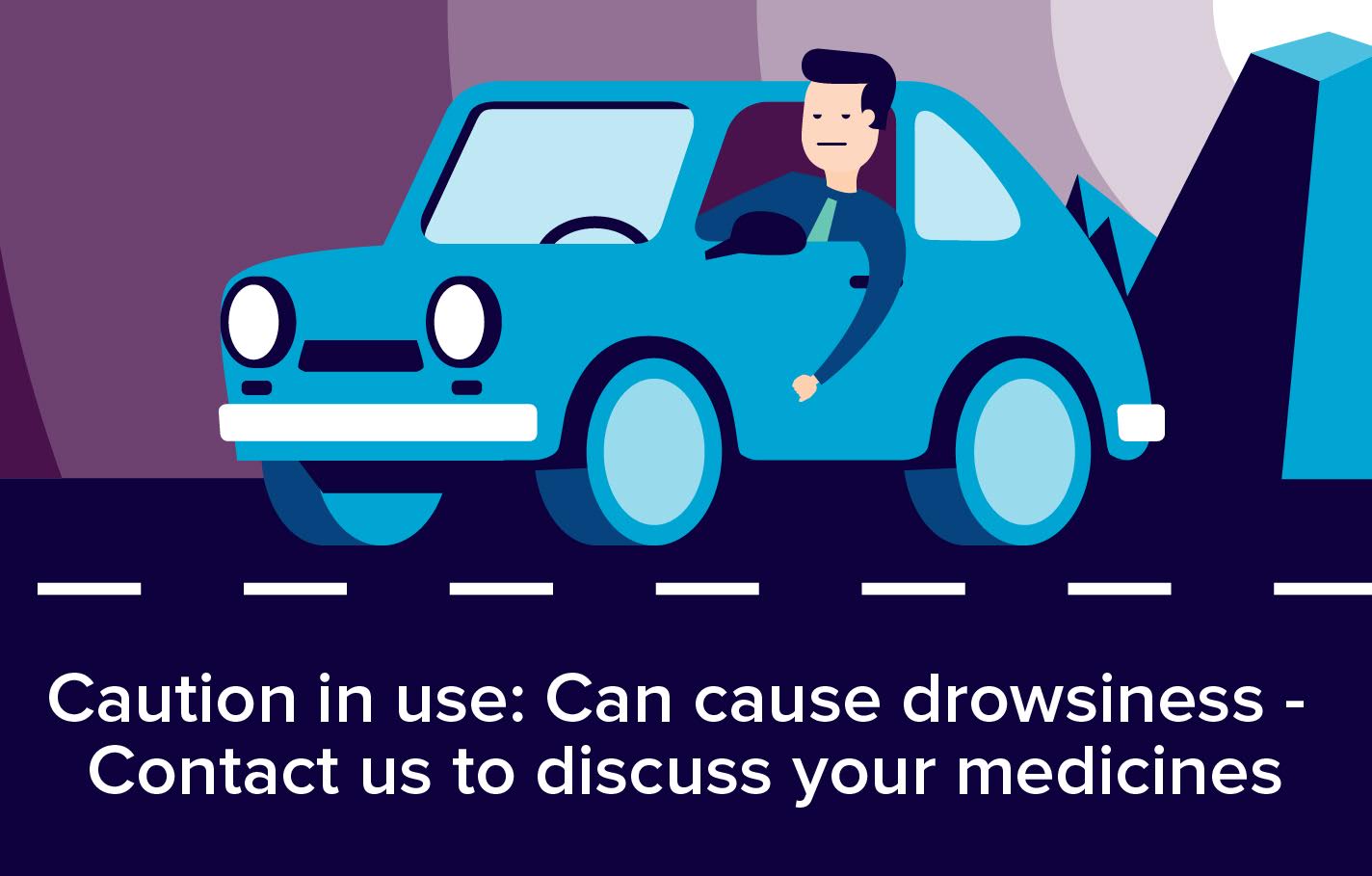Dilzem (Diltiazem) helps to maintain blood flow to the heart, reduce blood pressure and reduce the frequency and severity of angina attacks.

Why have I been prescribed Dilzem?
- Dilzem (Diltiazem) helps to maintain blood flow to the heart, reduce blood pressure and reduce the frequency and severity of angina attacks.
How does it work?
- It works by relaxing blood vessels.
When and how do I take it?
Take with a glass of water in the morning.
What’s the dose?
Dilzem XL
Hypertension: The usual initial dose is one 180mg capsule per day (corresponding to 180 mg of diltiazem hydrochloride once daily). Depending upon the clinical response the patient's dosage may be increased stepwise to 360mg/day if required.
Angina Pectoris: The usual initial dose is one 180mg capsule per day (corresponding to 180mg of diltiazem hydrochloride once daily). Depending on the clinical response the patient's dosage may be increased stepwise to 360mg/day if required.
Dilzem SR
Hypertension: The usual initial dose is 90mg twice daily (corresponding to 180mg of Diltiazem hydrochloride). Depending upon clinical response the patient's dosage may be increased to 180mg twice daily if required.
Angina Pectoris: The usual initial dose is 90mg twice daily (corresponding to 180mg of Diltiazem hydrochloride). Depending upon clinical response the patient's dosage may be increased to 180mg twice daily if required.
Could it interact with other tablets?
Tell your prescriber the names of all the medicines that you are taking so that they can consider all possible interactions. This includes all the medicines which have been prescribed by your GP, hospital doctor, dentist, nurse, health visitor, midwife or pharmacist. You must also tell your prescriber about medicines which you have bought over the counter without prescriptions.
The following medicines may interact with Diltiazem hydrochloride:
- amiodarone
- atorvastatin
- carbamazepine
- ciclosporin
- dantrolene, if injected into a vein
- digoxin
- lithium
- phenobarbital
- propranolol
- rifampicin
- simvastatin
- theophylline
- warfarin
- The following types of medicine may interact with Diltiazem hydrochloride:
- ACE inhibitors
- alpha-blockers
- antiarrhythmics
- beta-blockers
- cardiac glycosides
- cytochrome P450 enzyme inducers
- diuretics
- H2 antagonists
- halogenated anaesthetics
- medicines that are metabolised by the cytochrome P450 system
- medicines that lower blood pressure
- medicines that may slow the heart rate
- protein-bound agents
If you are taking Diltiazem hydrochloride and one of the above medicines or types of medicines, make sure your prescriber knows about it.
Herbal products should also only be taken after talking with your doctor.
What are the possible risks or side-effects?
Everyone's reaction to a medicine is different. It is difficult to predict which side-effects you will have from taking a particular medicine, or whether you will have any side-effects at all. The important thing is to tell your prescriber or pharmacist if you are having problems with your medicine.
Common: More than 1 in 100 people who take Diltiazem hydrochloride:
- feeling dizzy
- flushing
- headaches
- nausea
- oedema
- other heart problems
- skin rash or rashes
- slower heart rate
- weakness
Can I drink alcohol while taking it?
- There are no known interactions between alcohol and Diltiazem hydrochloride
- Always ask you doctor or pharmacist however as other medications you are taking may have a bearing on this.
What if I’m pregnant/breastfeeding?
Diltiazem must not be taken during pregnancy. There is no experience of its effects in humans. As diltiazem is known to enter the breast milk and there is no experience of possible effects in infants, infants should be weaned if treatment of the mother with diltiazem is necessary.
If you have any more questions please ask your Pharmacist.
Remember to keep all medicines out of reach of children
Please Note: We have made every effort to ensure that the content of this information sheet is correct at time of publish, but remember that information about drugs may change. This sheet does not list all the uses and side-effects associated with this drug. For full details please see the drug information leaflet which comes with your medicine. Your doctor will assess your medical circumstances and draw your attention to any information or side-effects which may be relevant in your particular case.
References:
http://medical-dictionary.thefreedictionary.com/Dilzem
http://www.medsafe.govt.nz/consumers/cmi/d/Dilzem.htm
http://www.netdoctor.co.uk/medicines/heart-and-blood/a6574/dilzem-sr-diltiazem/
http://www.drugs.com/diltiazem.html
https://www.medicines.org.uk/emc/medicine/28599

